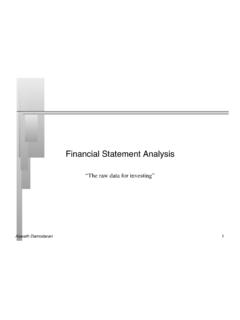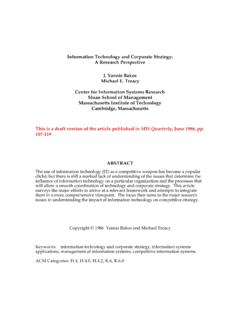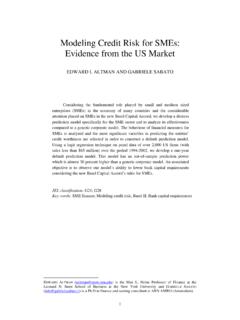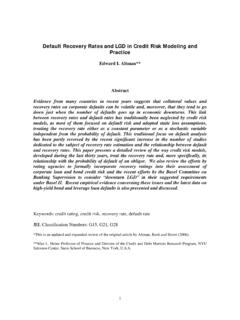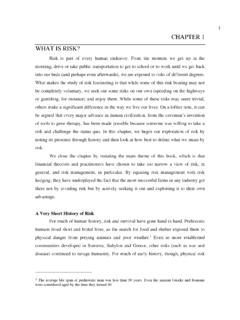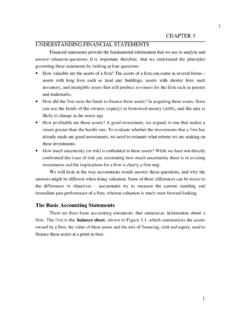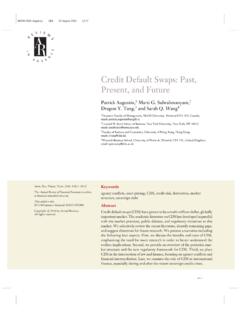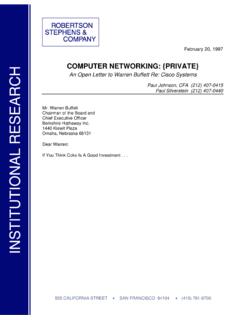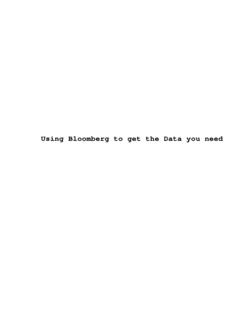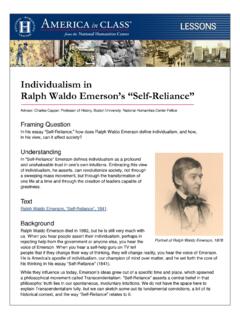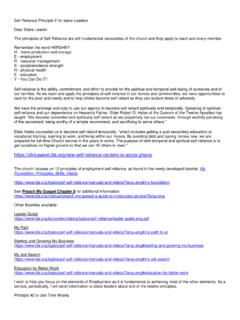Transcription of SELF-RELIANCE: A GENDER PERSPECTIVE ON ITS …
1 1 self - reliance : A GENDER PERSPECTIVE ON ITS relationship TO COMMUANLITY AND leadership EVALUATIONS Rebecca L. Schaumberg New York University 40 West 4th Street New York, NY 10003 Tel: (212) 998-0857 Email: Francis J. Flynn Stanford University 655 Knight Way Stanford, CA 94305 Tel: (650) 724-0312 Email: Author note. We are grateful to Lisa Leslie, Brian Lowery, Larissa Tiedens, Shelley Correll, and Christian Wheeler for their insightful comments and suggestions on earlier versions of this paper. We also would like to thank the three anonymous reviewers for their time and helpful feedback during the review process Please send correspondence: Rebecca (Becky) Schaumberg New York University Stern School of Business 40 West 4th Street New York, NY 10012 2 ABSTRACT We posit a female advantage in the relationship between self - reliance and leadership evaluations. We test this prediction in four studies. First, using multi-rater evaluations of young managers, we find that self - reliance relates positively to leadership evaluations for women, but not for men.
2 Next, in each of three experiments, we manipulate the GENDER of a leader and the agentic trait he or she displays ( , self - reliance , dominance, no discrete agentic trait). We find that self -reliant female leaders are evaluated as better leaders than self -reliant male leaders. In contrast, we find a male advantage or no GENDER advantage for dominant leaders or leaders who are described positively, but not in terms of any discrete agentic trait. Consistent with expectancy violation theory, the female advantage in the relationship between self - reliance and leadership evaluations emerges because self -reliant female leaders are seen as similarly competent, but more communal, than self -reliant male leaders. We discuss the implications of these findings for understanding the effects of self - reliance , GENDER stereotypes, and stereotype violations on leadership evaluations. Keywords. self - reliance , agency, GENDER , leadership , expectancy violation, autonomy 3 What should leaders be like?
3 Most people believe that leaders should be assertive, confident, dominant, and independent (Lord, Foti, & De Vader, 1984). Further, they believe these agentic traits align more closely with men than with women (Eagly & Karau, 2002; Koenig, Eagly, Mitchell, & Ristikari, 2011; Johnson Murphy, Zewdie, & Reichard, 2006). According to both extant theory and empirical research, the combination of these two beliefs that leaders need to be agentic in order to be effective, and that men are more agentic than women yields a male advantage in leadership evaluations. That is, people are predisposed to believe that men are more capable leaders than women (Eagly & Karau, 2002; Heilman, Wallen, Fuchs, & Tamkins, 2004; Ridgeway, 2001). Given that agentic traits are critical to leadership evaluations, one might assume that agentic women would be evaluated as well as men. However, according to role congruity theory (Eagly & Karau, 2002), this is unlikely to be the case because evidence of high agency in female leaders tends to elicit an assumption of low communality (Heilman & Okimoto, 2007).
4 As a result, exhibiting agentic traits, such as assertiveness and dominance, advantages men over women in leadership evaluations because exhibiting agency undermines perceived communality for women more than men. We challenge this aspect of role congruity theory by proposing that the negative effects of agency on evaluations of women s communality likely depend on the specific agentic traits that women display (cf. Rudman & Glick, 2001). Agency and communality represent two separate dimensions of human life (Bakan, 1966). Agency captures the drive for achievement and the promotion of one s own interests, and communality captures the drive for affiliation and the promotion of others interests (Wojciszke, Abele, & Baryla, 2009). These two dimensions represent separate constellations of traits; agency consists of traits related to controlling the 4 environment and asserting the self , and communality consists of traits related to cooperating and integrating the self with others (for full lists of these traits, see Abele & Wojciske, 2007; Bem, 1974).
5 Given the importance of both agency and communality in social life, Bakan (1966) argued that too much of either is costly, and thus it is best for personal and social outcomes when these two components are balanced. Indeed, people are most highly regarded when they are seen as both highly agentic and highly communal (Fiske, Cuddy, Glick, & Xu, 2002). Viewing agentic traits in undifferentiated terms has been useful for mapping the intra- and interpersonal space in personality research ( , Fiske et al., 2002). At the same time, this view may misrepresent GENDER differences in the relationship between agency and leadership evaluations by masking variations among discrete agentic traits. For example, in previous research, the degree of backlash that women incurred for displaying agency depended, in part, on the specific agentic trait they displayed (Rudman & Glick, 2001). Whereas people responded more positively to men than women who exhibited dominance (Rudman, Moss-Racusin, Phelan, & Nauts, 2012), they responded similarly to men and women who exhibited agency in more competence-based terms (Rudman & Glick, 2001).
6 We push this idea further to suggest that displays of certain agentic traits can reverse the male advantage in leadership evaluations. Specifically, we draw on expectancy violation theory to propose that when agency is expressed as self - reliance , a female advantage in leadership evaluations emerges. By identifying a female advantage in the relationship between self - reliance and leadership evaluations, we offer a novel PERSPECTIVE on how GENDER stereotypes influence evaluations of female leaders. We first describe self - reliance and its potential effect on leadership evaluations. Next, we highlight conflicting predictions regarding whether agentic and communal stereotypes help or hurt male and female leaders. We then draw on expectancy violation theory and 5 distinctions between prescriptive and proscriptive GENDER stereotypes both to reconcile these conflicting predictions and to explain the benefits of self - reliance for women s leadership evaluations.
7 In doing so, we outline a new direction for future theory and research on GENDER stereotypes, personality traits, and leadership evaluations. THEORY AND HYPOTHESIS DEVELOPMENT self - reliance self - reliance is commonly defined as the capacity to rely on oneself or one s own capabilities to meet one s personal needs. Agreement with statements such as I depend on myself, not on others, to get what I want done and disagreement with statements such as Someone often has to tell me what to do indicate a high level of self - reliance (Hmel & Pincus, 2002; Steinberg & Silverberg, 1986; Triandis & Gelfand, 1998). As a scholarly construct, self - reliance emerged in the 19th century in transcendentalist writings of the time, most notably Ralph Waldo Emerson s (1841) eponymous essay. Today, the concept emerges prominently in cross-cultural and developmental psychology because self - reliance is seen a distinguishing marker of individualistic societies, and its development is regarded as necessary for a successful transition to adulthood ( , Blos, 1979, Hirschfield, et al.)
8 , 1977; Steinberg, 1989; Triandis & Gelfand, 1998). In comparison, self - reliance has been absent from trait theories of leadership , despite being featured heavily in historical narratives of political leaders and lionized heroes of the American West ( , Hofstadter & Lasch, 1989; Kalberg, 2015; Riley & Etulain, 1997; Turner, 1986). In our aim to connect self - reliance to trait theories of leadership , we draw partly from some aspects of autonomy and individualism that overlap directly with self - reliance . self - reliance and communality 6 In American culture, self - reliance is a socially desirable trait (Hsu, 1972; Prentice & Carranza, 2002; Kalberg, 2015) that reflects an absence of excessive dependence on others, a sense of control over one s life, and personal initiative (Blatt, Quinlan, Chevron, McDonald, & Zuroff, 1982; Clark, Beck, & Brown, 1992; Hirschfeld et al., 1977; Steinberg & Silverberg, 1982).
9 As this signal of self -governance, self - reliance clearly signals agency, but does self - reliance also connote a lack of communality ? On the one hand, self - reliance has been shown to emerge independent from or in concert with communality ; indeed, some evidence suggests that emotional closeness with one s parents allows self - reliance to develop in adolescence (Clark et al., 1992; Chodorow, 1978; Kagitcibasi, 1996; Steinberg & Silverberg, 1982). On the other hand, self - reliance has been associated with avoiding close relationships and refusing to ask for help even when one needs it ( , Addis & Mahalik, 2003; Bowlby, 1980) Evidence that self - reliance can signal self -governance, low communality , or some combination of the two is reflected in public perception of the construct. To better understand lay perceptions of self - reliance , we asked 20 adults to define a self -reliant person. In response to the prompt, A self -reliant person is someone respondents described a person who does not require the help of others to meet [his/her] everyday needs and financial obligations, does not have to depend on other people to get a job done, and can solve problems by him[her] self that others might consider better solved by an additional person or a group.
10 At the same time, respondents noted that a self -reliant person is someone who can be a loner and is occasionally head-strong, and that self - reliance can be a bad thing if [someone] refuse[s] to ask for help when [he/she] really needs it. self - reliance and leadership evaluations 7 self - reliance is an interesting trait to study in the context of leadership evaluations because it appears to be both characteristic and uncharacteristic of people s beliefs about what makes a good leader (Den Hartog, 1999; Epitropaki & Martin, 2004; Javidan, Dorfman, De Luque, & House, 2006). As a signal for self -governance, self - reliance would likely elicit positive leadership evaluations because of the strong association between perceived agency and leadership ability (Koenig, Eagly, Mitchell, & Ristikari, 2011; Lord, et al., 1984). People believe that good leaders are independent of others influence, set their own course of action, and are not dependent on others for guidance and direction (Antonakis & House, 2014; Epitropaki & Martin, 2004; Lord et al.)
